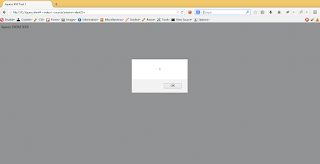Hash Collision Attack
In cryptography, a collision attack on a cryptographic hash
tries to find two inputs producing the same hash value, i.e. a hash collision.
A Collision Attack is an attempt to find two input strings
of a hash function that produces the same hash result. Because hash functions
have infinite input length and a predefined output length, there is inevitably
going to be the possibility of two different inputs that produce the same
output hash. If two separate inputs produce the same hash output, it is called
a collision. This collision can then be exploited by any application that
compares two hashes together – such as password hashes, file integrity checks,
etc.
For example, let’s say we have a hypothetical hash function
called “Hesh”. A collision attack would first start with a starting input
value, and hash it.
Hesh(hello) = 89232323
Now the attacker needs to find a collision – a different
input that generates the same hash as the previous input. This would generally
be done through a brute-force method (trying all possible combinations) until
one was found. Let’s say we found a collision for this input in our
hypothetical hash function.
Hesh(asdfghjklzxcvbnmqwertyuiop) = 89232323
The attacker now knows two inputs with the same resulting
hash. As an example for a practical use of this – if the attacker was offering
a file download and showed the hash to prove the file’s integrity, he could
switch out the file download but the hash would remain the same. The file would
appear valid as it has the same hash as the supposed real file, but he could
swap out the correct file for the collision instead, without it being obvious
to the file validator.
So – are hash collisions realistically feasible? Yes,
depending on the hash function. Md5 and even SHA-1 have been shown to not be
very collision resistant – however SHA-256 and above seem to be safe at the
current time. Here’s a visual example of what a collision attack might entail
on an md5 hash. Can you figure out what this md5’s input was?


Comments
Post a Comment